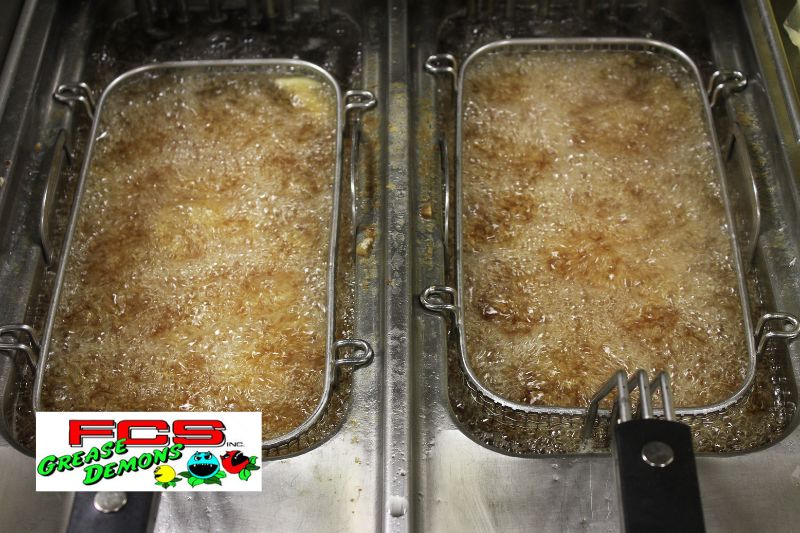How to Implement a Used Cooking Oil Recycling Program in Your Restaurant
Recycling used cooking oil is an essential step toward running a sustainable restaurant and contributing to environmental conservation. Not only does recycling keep harmful waste out of landfills and sewers, but it also offers a chance to repurpose oil for biodiesel and other products. Implementing a used cooking oil recycling program is straightforward, benefiting your restaurant, community, and the environment.
This guide will walk you through the process of setting up a used cooking oil recycling program in your restaurant, explaining everything from the basics of recycling to the benefits and best practices for managing oil waste.
Step 1: Understand the Benefits of Recycling Used Cooking Oil
Before starting, it’s helpful to know why recycling used cooking oil is so beneficial. Recycling offers environmental and financial advantages that can elevate your restaurant’s reputation and help you save on waste management costs.
- Environmental Impact: Cooking oil disposed of improperly can contaminate water systems and clog sewers, causing environmental damage. Recycling repurposes the oil for biofuel production, reducing pollution and greenhouse gas emissions.
- Waste Reduction: Recycling helps minimize the amount of waste your restaurant generates, keeping grease out of landfills and reducing the burden on waste disposal systems.
- Positive Brand Image: Consumers are increasingly drawn to sustainable businesses. By implementing a used cooking oil recycling program, you demonstrate your commitment to eco-friendly practices.
With these benefits in mind, let’s explore how used cooking oil is recycled and how your restaurant can join the movement.
Step 2: Learn How Used Cooking Oil Is Recycled
Before implementing a program, it helps to understand how used cooking oil is repurposed. So, how is used cooking oil recycled?
- Collection: Used cooking oil is collected from restaurants, either by a recycling company or through a designated container system.
- Filtration and Cleaning: Once collected, the oil goes through a filtration process to remove food particles and impurities.
- Conversion: The cleaned oil is then converted into products like biodiesel, animal feed, or industrial lubricants. Biodiesel is a popular end product due to its low environmental impact.
Recycling used cooking oil reduces waste and contributes to a circular economy by repurposing waste into valuable resources. Now, let’s go over the steps for setting up your recycling program.
Step 3: Partner with a Reliable Oil Recycling Service
One of the easiest ways to implement a recycling program is by partnering with a used oil recycling service. These services specialize in collecting, filtering, and repurposing used cooking oil, making the process easy for restaurant owners.
When choosing a recycling service, consider the following:
- Reputation and Reliability: Look for a company with a good track record in sustainability and reliability, ensuring your oil is collected regularly and responsibly.
- Compliance and Certifications: Verify that the company follows local regulations for grease disposal and has certifications that meet environmental standards.
- Collection Schedule and Fees: Some companies offer free oil collection if the oil will be used for biofuel production. Make sure the pickup schedule aligns with your restaurant’s needs, minimizing disruptions.
By partnering with a trusted oil recycling service, you can ensure that your used cooking oil is handled properly, efficiently, and in an eco-friendly manner.
Step 4: Set Up Proper Collection and Storage
Efficient collection and storage are essential to a successful recycling program. Here’s how to organize it in your kitchen:
- Designate a Storage Area: Choose a safe, accessible area in the back of your kitchen or outside for oil storage containers. Ensure that it’s away from high-traffic areas to avoid spills.
- Use Sealed Containers: Invest in durable, sealed containers for used oil. Many recycling services provide their own containers to help maintain quality control and ensure easy collection.
- Implement a Collection Routine: Establish a routine for transferring used oil from fryers and cooking equipment into storage containers. This step keeps the process organized and ensures the oil is fresh for recycling.
Proper storage is crucial because contaminants or leaks can complicate the recycling process. Make sure staff know where and how to dispose of oil correctly.
Step 5: Train Staff on Oil Recycling Procedures
To ensure the success of your program, it’s essential to train staff on the proper methods for handling and storing used oil. A brief training can make all the difference in maintaining consistency and avoiding mistakes.
- Handling and Storage: Train employees on how to safely transfer oil from kitchen equipment to the storage containers.
- Safety and Cleanliness: Explain the importance of keeping storage areas clean and promptly addressing any spills.
- Frequency and Collection Schedule: Make staff aware of the oil collection schedule, so they can coordinate and prepare accordingly.
Training promotes responsibility and empowers your team to support the restaurant’s eco-friendly initiatives.
Step 6: Keep Records of Oil Usage and Disposal
Tracking your oil usage and disposal can help you monitor the program’s effectiveness and ensure compliance with local regulations. Maintaining records also allows you to evaluate the impact of the program over time, helping you find ways to optimize it.
- Collection Logs: Record each oil pickup or disposal to keep track of frequency and volume.
- Volume of Used Oil: Track how much oil your restaurant uses and recycles monthly. This data can provide insights into usage patterns and help you reduce overall waste.
- Service Invoices: Keep invoices from your recycling service as proof of disposal for regulatory compliance.
Maintaining records is not only helpful for operational analysis but also provides documentation of your restaurant’s sustainability efforts, which can be used in marketing or reporting.
Step 7: Promote Your Recycling Program to Customers
Consumers value businesses that prioritize sustainable practices, so don’t hesitate to share your recycling efforts. Promoting your used cooking oil recycling program can boost your restaurant’s image and attract eco-conscious customers.
- Add It to Your Marketing Materials: Mention your sustainability efforts on your website, social media, or menu. Customers appreciate knowing they’re supporting an environmentally responsible business.
- Post Signage in Your Restaurant: Display signage or a certificate highlighting your partnership with an oil recycling service.
- Share the Benefits: Educate customers on the positive impact of recycling used oil, such as reducing waste and contributing to renewable energy.
By sharing your eco-friendly practices, you create a positive brand image and connect with customers who value sustainability.
Step 8: Stay Informed on Local Regulations
Grease and oil disposal regulations vary by state and municipality, so it’s essential to stay up-to-date on requirements in your area. Failing to comply with regulations can result in fines, so make sure you’re informed on any changes.
In Florida, for instance, grease disposal regulations emphasize the importance of working with certified haulers and maintaining clean grease traps. Partnering with a compliant oil recycling service can help you meet these regulations, but it’s still good practice to review local policies periodically.
Contact FCS, Inc for Cooking Oil Recycling in Florida
Implementing a used cooking oil recycling program is a straightforward and effective way for restaurants to adopt sustainable practices. From partnering with a reliable recycling service to training staff and promoting your efforts, a well-organized program brings environmental and financial benefits while supporting renewable energy.
For assistance in setting up a used cooking oil recycling program, contact FCS, Inc. Our team offers reliable oil collection and recycling services designed to help restaurants reduce waste and protect the environment. Let us help you turn your used cooking oil into a positive force for change.

